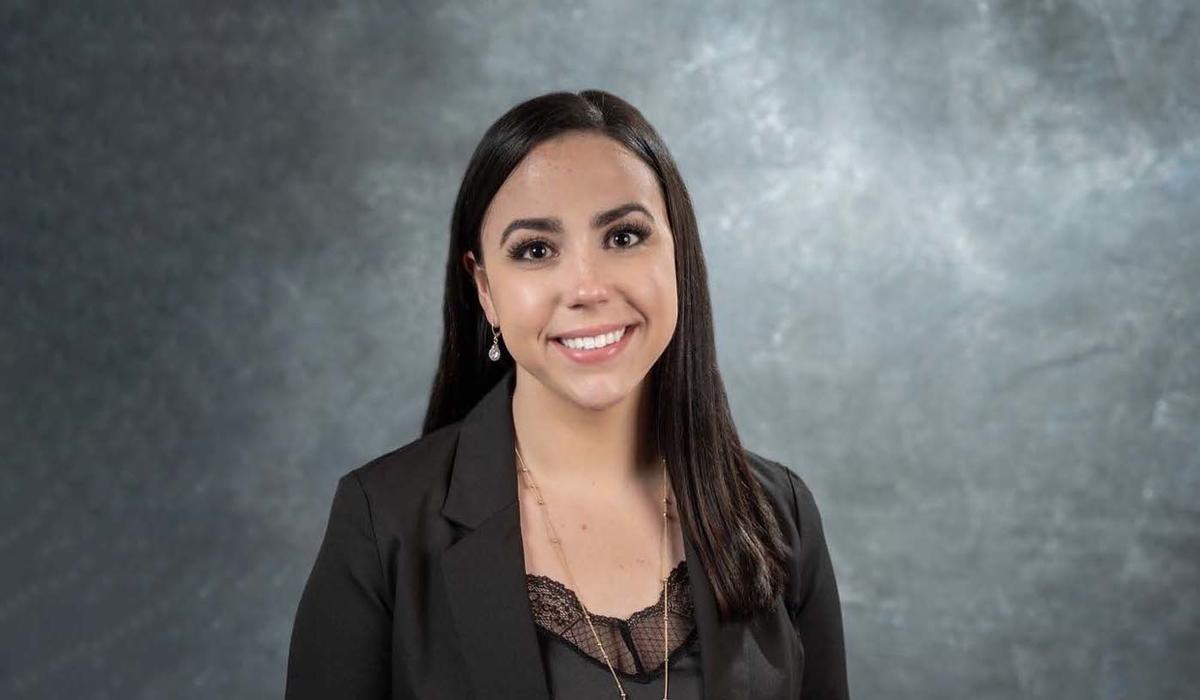Emily Mack will say life is all about timing. Timing is what brought Mack into social work.
“I just knew I wanted to help people,” she says when discussing her bachelor’s. “I don’t think I knew it would be social work.”
Timing introduced Mack to October Allen, who directs Grace Place, where she now works.
“October actually interned where I used to work,” Mack says. “She had told me she was opening Grace Place—her very first house—and I really wanted to volunteer. Eventually, I came on board as her first staff.”
Working at Grace Place, a long-term homeless housing support program for women in St. Louis County, affirmed that social work was where Mack wanted to be, an option she didn't consider at first.
A moment in time made Mack decide to get her master’s degree. After witnessing the aftermath of George Floyd’s death, she felt the urge to do more. “I graduated with my bachelor’s in social work from UWS in 2017 and had no desire to get my master’s,” she says. “And then George Floyd happened, and my heart broke at the community’s response to it. I realized the people I serve deserve someone who is as educated as possible, and I felt like I needed more education on how to have difficult conversations, and really grow in that skill. That’s what really spurred me to get my master’s.”
Mack is one of the recipients of the Department of Social Work's Providing Advanced Clinical Training (PACT) grant, which focuses on training professionals in providing mental health care, specifically for children and youth and their primary caregivers.
For Mack, the timing worked out once again. “I don’t think I planned on going the clinical route until the funding was there, but this matches what I want to do and the people that I work with.” Mack says in regards to her education, “I’m happy that I waited 5 years. I wouldn’t have planned it this way, but it allowed me to be really thoughtful and intentional with pursuing an education. I could put something into practice that I was learning right now.”
The clinical route, in particular, opens up new opportunities for Mack and her work. Currently the program director at Grace Place, she’s been able to grow along with the program. Grace Place offers a variety of supportive services, such as case management and advocacy, as well as drug and alcohol recovery support. It was started by October Allen in 2018, with Mack coming on as the first staff. By focusing on clinical mental health, she’ll be able to further enhance the services provided.
Grace Place truly does offer a saving grace. Eleven fully-furnished houses are available, with 4-6 bedrooms and utilities provided. Rent isn’t charged—the primary focus is to heal. “We give preference to people coming out of jail, prison, or treatment, so we get a lot of gals and guys that way,” she says. “We’re housing the hardest to house individuals.”
Mack is looking to get rid of the stigma surrounding homelessness. “There's a lot of behaviors that jeopardize someone’s ability to keep stable housing, whether that’s mental health or chemical dependency,” Mack states. “I wish people would see that the gals in our program are truly struggling for their lives most of the time … it’s more than just someone seeking a service.”
She spoke about this very subject recently at both the St. Louis County Health and Human Services Conference and the Minnesota Social Service Association (MSSA) conference. Mack and Allen were able to highlight the services Grace Place offers, with real stories being shared. “The storytelling part of it was probably more enticing,” she confirms. “I think that was really useful, especially because there’s such a stigma to lived experience that even professionals have.”
Lived experience is part of why Mack went into social work. “I grew up under the poverty line, I am a survivor of domestic violence and sexual assault, I have a brother with a disability … Those are probably some of the biggest factors that led me into social work.”
It can be frustrating to navigate at times, she says. “At the end of the day, the people there are more than a file that you close up and put in a cabinet when you’re done. It’s their life.”
“We get to be there for the good and the bad and the ugly—we see it all,” Mack states.
The work she is doing is far from done, but Mack is ready for more. “I wouldn’t have picked this for myself, but I feel like it’s divine intervention. I am truly happiest in this role.”
About the Department of Social Work
This story was written by UMD student Erika Doetkott, who is majoring in Communication Sciences and Disorders. Erika assists Lissa Maki with communications for the College of Education and Human Service Professions.
